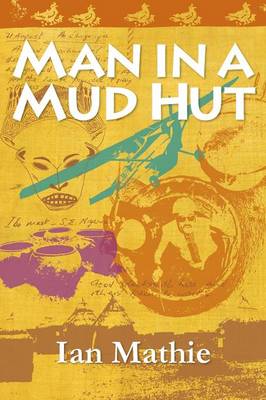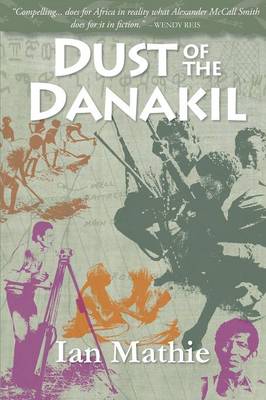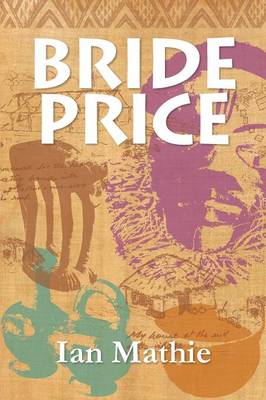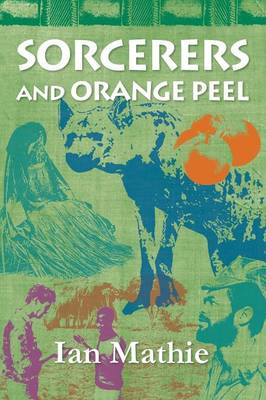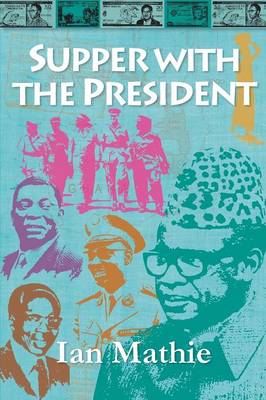African Memoir
1 primary work • 5 total works
Book 381
An uninvited 'ferret' from Whitehall, dark deeds in the 'heart of darkness', escape from bloody terror and black magic - a true story that shocks the sensibilities and staggers the imagination...West Africa is the setting for MAN IN A MUD HUT, an intriguing story of witchcraft, wizardry, water resources and Whitehall bureaucracy. It is the gripping true account of a clash of cultures and what can happen when preconceived western ideas collide with the raw reality that is rural Africa. MAN IN A MUD HUT tells the story of Desmond Parkis, who was sent from London to find out why a taxpayer-funded aid project in Nigeria was going wrong. Pitched head-first into a culture alien to anything he had experienced before, Desmond uncovered much more than expected; a snake pit of corruption, extortion, murder and evil that threatened to devour him with primal forces beyond comprehension. Tasked with Desmond's safety, the author diverted attention from his own rural development work to extract his reluctant house-guest from danger and immerse him in the rich culture of African village life while he recovered.
His engagement with the villagers, including a team of masons, an argumentative butcher, an ingenious blacksmith and a witch-doctor who looked into his soul and ministered to his afflictions, gave Desmond a very different view of Africa and new respect for its people by the time he finally left. Rural development work in the 1970s forms the backdrop to Ian Mathie's gripping narrative. MAN IN A MUD HUT opens a window on a changing world where age-old customs and practices coexist with new methods and technology, where Land Rovers share roads with donkey carts, where the sound of Beethoven symphonies echoes across the parched bush landscape and appeasement of the spirits is an everyday necessity. MAN IN A MUD HUT is as engaging as it is eye-opening, a juxtaposition of the bizarre and the unusual with the essential humanity of people whatever their colour, language or background.
His engagement with the villagers, including a team of masons, an argumentative butcher, an ingenious blacksmith and a witch-doctor who looked into his soul and ministered to his afflictions, gave Desmond a very different view of Africa and new respect for its people by the time he finally left. Rural development work in the 1970s forms the backdrop to Ian Mathie's gripping narrative. MAN IN A MUD HUT opens a window on a changing world where age-old customs and practices coexist with new methods and technology, where Land Rovers share roads with donkey carts, where the sound of Beethoven symphonies echoes across the parched bush landscape and appeasement of the spirits is an everyday necessity. MAN IN A MUD HUT is as engaging as it is eye-opening, a juxtaposition of the bizarre and the unusual with the essential humanity of people whatever their colour, language or background.
Drought is a natural disaster; starvation is a man-made tragedy. Preventing the former can go a long way to alleviating the latter, but not without the political will, as Ian Mathie makes clear in this gripping memoir of the 1974 humanitarian crisis in Ethiopia. Dust of the Danakil is a true story of an ill-conceived project run by the author in the violent, drought-stricken Danakil region of Ethiopia. Sent by UK government pen-pushers to harness seasonal flood water and turn the notoriously aggressive Afar herdsmen into farmers, he discovered a hostile environment - in more ways than one - that almost cost him his life. Intrigue, ingenuity, coercion and corruption make Dust of the Danakil an unforgettable story of despair, hope and disappointment which provokes an indictment of the relief and aid industries.
Working and living in the forests of Zaire during the reign of President Mobuto Sese Seko, Ian Mathie found himself the foster father of an orphaned girl. When a powerful and feared man from another village demanded that he set a 'bride price' for the child, Ian was forced to rely on his wits and courage to find a way within the rich traditions of the area to set a fair price the man would refuse to pay. BRIDE PRICE tells the story of how this problem was resolved. Set in the brooding vastness of the tropical rain forest, it provides intimate insights into the lives of a little-known people and their complex relationship with their environment, the spirits and the outside world.
Sorcery is a fact of life in many African societies; the supernatural is taken for granted. In SORCERERS AND ORANGE PEEL, author Ian Mathie describes how this other dimension plays a role - somethings amusing, sometimes frightening, always intriguing - in everyday life in West Africa. When Ian came across an elderly couple, sick and abandoned in inhospitable countryside, he ignored the warning signs of witchcraft and frightening encounters with an apparition to coax them back to health. Thus began a remarkable association with one small and remote village whose subsistence living Ian was able to help boost with the unlikely intervention of a Paris parfumier, a Poro devil, assorted helpers - and a native soap industry. Along the way, he was initiated by a village sorcerer and adopted by a family whose water supply he cleaned up. During his years in Africa as a water resources specialist, Ian Mathie experienced much that challenges Western beliefs and perceptions. SORCERERS AND ORANGE PEEL - the fifth book in the African Memoir Series - is an eventful journey through the haze where science meets superstition."
To some it may seem fanciful, even impossible," Ian writes, "but having lived through it, I assure you it is all true."
To some it may seem fanciful, even impossible," Ian writes, "but having lived through it, I assure you it is all true."
West Africa in the 1970s was a volatile melange of old and new; of aspiration, corruption, power and influence. In its midst, Ian Mathie laboured in his role as a water engineer to help improve the lives of ordinary people. His work brought him in contact with presidents, kings, emperors, chiefs and a succession of extraordinary characters. Circumstances contrived to place him at dinners with four heads of state whose rule had immense impact, positive and negative, on their countries and on West and Central Africa: Mobutu of Zaire, Traore of Mali, Senghor of Senegal and Eyadema of Togo. In 'Supper with the President', he recalls the events and the insights they gave him, interweaving those experiences with true stories of other extraordinary brushes with sorcery, slavery, wildlife conservation, desert travel and a jail-break that could only happen in Africa.
